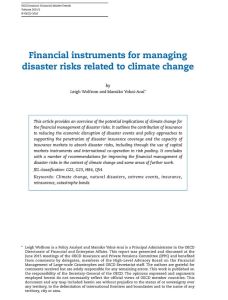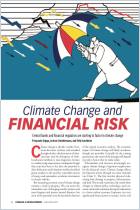Únase a getAbstract para acceder al resumen.

Únase a getAbstract para acceder al resumen.
Leigh Wolfrom and Mamiko Yokoi-Arai
Financial Instruments for Managing Disaster Risks Related to Climate Change
OECD, 2016
¿De qué se trata?
Evolving financial strategies can mitigate some of the costs of climate change’s disaster events.
Recommendation
Government leaders and financial professionals concerned with managing asset risk and their liabilities are contemplating the costs of extreme disaster events induced by climate change. In this insightful article, OECD policy experts Leigh Wolfrom and Mamiko Yokoi-Arai explain how alternative market instruments and combined international efforts can help mitigate the enormous financial losses resulting from natural disasters. getAbstract highly recommends this well-researched analysis to risk managers, policy makers and others concerned about financial protection from the impacts of climate change.
Summary
About the Authors
Leigh Wolfrom is a policy analyst at the OECD, where Mamiko Yokoi-Arai is a principal administrator.

























Comment on this summary